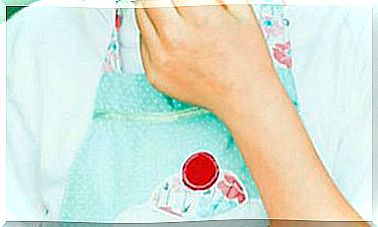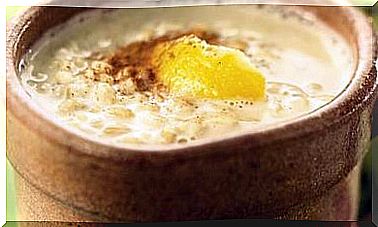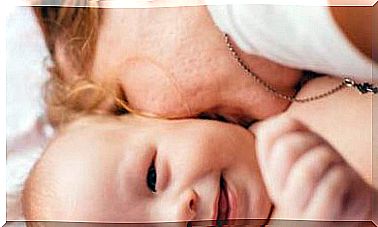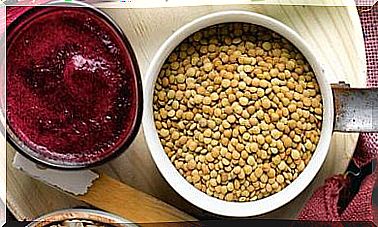Weekly Menu For Allergy And Keys To Prevent It With Diet
If you have an allergy, the ideal is to take care of the microbiota, cleanse the liver and reduce histamine with food. We give you an example of a weekly menu to achieve this.

- Why do allergies appear
- How the intestinal flora influences
- What to eat when you have an allergy
- How to promote intestinal health
- Keys to help the liver
- Download a weekly allergy menu
It is increasingly common to find people who suffer from allergies and their consequences, and most are due to pollen. In recent years, this situation has increased: it is estimated that there are already 12 million Spaniards who suffer from pollen allergies.
This is likely to happen for several causes, but experts warn about the influence of climate change, pollution, excessive cleaning and the abuse of antibiotics.
Climate change makes plants start earlier and end the pollination period later. For its part, pollution favors the exit of pollen from plants and increases irritation of the respiratory tract.
The key is to take care of yourself. Even having tools to fight against environmental factors, where we can act most is in our body. Taking care of it we can prevent this situation that causes rhinorrhea (mucus), stinging eyes and tearing, sneezing or asthma.
Why do allergies appear
Allergy is the inflammatory response of the immune system in which, among other substances, histamine, responsible for the main allergic symptoms, is produced. These appear when the allergen overcomes the first defensive barriers (skin and mucous membranes).
Allergies exist because the protective barriers (digestive system, lungs, and skin) are overloaded. In fact, in our gastrointestinal tract, between 70 and 80% of the immune system resides, and there are factors capable of inflaming and irritating this intestinal mucosa : diet (coffee, gluten, dairy, sugar, processed, refined), stress, alcohol or infections. All of them cause intestinal hyperpermeability.
A leaky gut allows substances to enter the bloodstream that they shouldn’t. This causes the immune system to be activated to fight against potential pathogens.
In the long run, this hyperactivity causes an erratic reaction to any element with which it comes into contact. Pollen can be one of them.
In addition to taking care of our digestive system and, as a consequence, our immune system, we must also guarantee correct liver function, because an accumulation of toxins in the body with a saturated liver favors the appearance of allergies.
The most common symptoms of pollen allergy
All it takes is one plant to produce thousands of pollen grains that cause an exaggerated immune response.
Among the most frequent symptoms we find itching, redness and / or swelling of the eyes or conjunctivitis, itchy palate or nose, allergic rhinitis or inflammation of the nasal mucosa (which causes congestion and runny nose) or frequent sneezing are the symptoms. usual.
In the worst cases, the allergy can lead to asthma and shortness of breath.
Migraine or headache, tiredness, irritability, or difficulty falling asleep can also be allergy symptoms.
How the intestinal flora influences
It is essential to take care of the intestinal wall, its mucous membranes and the microbiota so that they can perform their functions properly: guarantee the absorption of nutrients, act as a barrier against pathogens and generate beneficial substances for the body.
If we reduce intestinal hyperpermeability and guarantee that the intestine fulfills its protective function, there will not be an exaggerated immune response against pollen.
In addition, when the intestine is able to carry out its task, it also helps the liver with its functions during the months prior to pollination, from the end of winter.
What to eat when you have an allergy
A nutritious diet keeps the digestive system and immunity in good condition. What foods would be part of an ideal intake for our objective?
- Vitamin C. It is found in citrus fruits and fresh foods, but if you are allergic, you may want to take a supplement.
- Magnesium. This mineral, along with others, improves liver methylation and helps relax muscles in asthma.
- Antioxidants Quercetin has an important antihistamine action. It is found in foods such as apples and onions. Epigallocatechin gallate, found in green tea, is another recommended antioxidant.
- Omega 3 fatty acids. Present in flax and chia seeds, as well as walnuts, they are highly recommended for their anti-inflammatory action.
Until the intestine recovers its adequate permeability and is capable of manufacturing the enzyme DAO (diamine oxidase), a diet low in histamine should be followed. For this reason, the consumption of preserves, sausages and cured cheeses must be eliminated.
How to promote intestinal health
It is essential to take care of the microbiota, as it not only improves the state of the intestinal wall, but also synthesizes nutrients such as vitamin K or the group of B vitamins that favor the digestion of food and the absorption of nutrients.
To keep it in good condition, you can take a combination of probiotics and prebiotics (fermented cabbage, kefir, kombucha …) and foods rich in prebiotic fibers (asparagus, garlic, artichoke, onion …).
In addition, the state of the intestinal wall can be improved with the intake of a supplement of L-glutamine, an amino acid that helps to repair the intestine, because it is a food for your cells. Cabbages contain it, in addition to being rich in detoxifiers and antioxidants.
Keys to help the liver
Taking care of liver function to prevent this important organ from being overloaded is also essential, so in the months prior to pollination it is advisable to follow a cleansing diet rich in green leafy vegetables, sprouted seeds and celery, turnip, onion broths. .
Bitter foods are recommended (artichokes, endives, arugula or endive), detoxifying foods such as broccoli and boldo, fumitory and dandelion infusions, among others.
To avoid saturation of the liver that favors allergies, it is also important to reduce the consumption of refined fats.
Finally, remember that anxiety and stress cause the release of hormones that affect the intestine and immunity. Eat calmly and learn to manage stressful situations, which can act as a trigger.
Download a weekly allergy menu
A diet that favors the health of the microbiota, rich in probiotic foods and prebiotic fibers, and that at the same time helps the liver in its purifying function, is key to avoiding intestinal permeability that favors allergies such as seasonal rhinitis.
- You can download the allergy diet here.
In this weekly menu you will find breakfast, lunch and dinner proposals for every day of the week, as well as a recipe for varied vegetable pickles that will help you take care of your intestinal microbiota.








